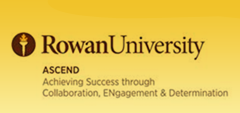Reimagining STEM in the First-Generation (access, opportunities, and community)
Loading...
Start Date
2-2-2022 12:45 PM
End Date
2-2-2022 1:15 PM
Document Type
Presentation
Description
The pandemic continues to teach us life lessons about health, education, and psychology while it also draws light on the disparities between generations, communities, and access to opportunities. What used to be deemed as an option is now necessary. Access to STEM and related resources. First generation students, while facing many other challenges daily, now have had to overcome additional obstacles that no one could have foreseen, including: Access to technology (computers, Wi-Fi), preparation (navigating academia, educational preparation for college coursework), social isolation (especially URM students – racial discrimination, insecurities about belonging), community support (on demand counselors, safe space to discuss challenges), financial resources (lack of materials/tools to succeed outside of the classroom). As a community, now that we have this information, it is mandatory that we collectively put programs/resources in place to continue to support our students. Re-imagining what support measures are in place, regardless of where our students are attending class is critical, if we want to see any movement at shrinking the educational/social gap within our communities. These types of programs include: off-hours programs that offer one on one support to students and their families, dedicated team of professionals focusing on listening to the needs of families and engaging them in ongoing conversations, while offering support, mechanisms for students to “reach out” regardless of their learning location, emergency funds, dedicated to these populations which provide some financial relief community collaboration is no longer an option, but necessary if we want to see our students no longer be left behind. STEM programs that are supported and funded, year-round, providing additional support to students in these areas.
Presentation was given twice. Both presentations are below.
Presentation from Feb 3, 2022
Reimagining STEM in the First-Generation (access, opportunities, and community)
The pandemic continues to teach us life lessons about health, education, and psychology while it also draws light on the disparities between generations, communities, and access to opportunities. What used to be deemed as an option is now necessary. Access to STEM and related resources. First generation students, while facing many other challenges daily, now have had to overcome additional obstacles that no one could have foreseen, including: Access to technology (computers, Wi-Fi), preparation (navigating academia, educational preparation for college coursework), social isolation (especially URM students – racial discrimination, insecurities about belonging), community support (on demand counselors, safe space to discuss challenges), financial resources (lack of materials/tools to succeed outside of the classroom). As a community, now that we have this information, it is mandatory that we collectively put programs/resources in place to continue to support our students. Re-imagining what support measures are in place, regardless of where our students are attending class is critical, if we want to see any movement at shrinking the educational/social gap within our communities. These types of programs include: off-hours programs that offer one on one support to students and their families, dedicated team of professionals focusing on listening to the needs of families and engaging them in ongoing conversations, while offering support, mechanisms for students to “reach out” regardless of their learning location, emergency funds, dedicated to these populations which provide some financial relief community collaboration is no longer an option, but necessary if we want to see our students no longer be left behind. STEM programs that are supported and funded, year-round, providing additional support to students in these areas.
Presentation was given twice. Both presentations are below.


